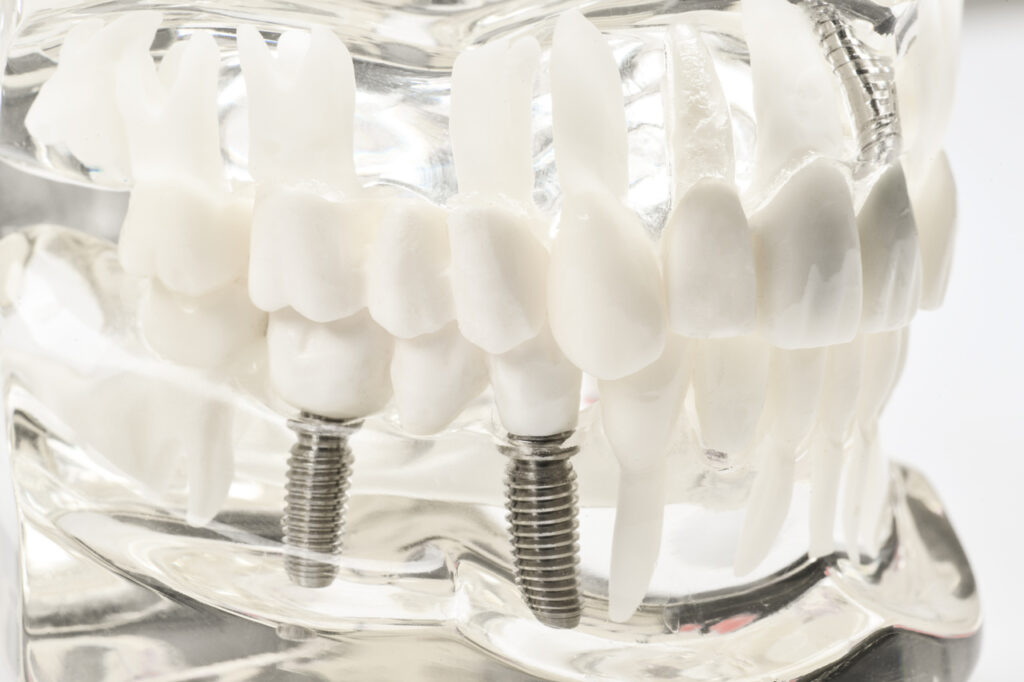1. Why would I need a crown?
There are several reasons:

2. What materials is the dental crown made of?
Exclusive Dental Studio offers different types of crowns and bridges:
Over the last 20 years, ceramic crowns have become very popular. This type of restoration features excellent mechanical and aesthetic properties. In fact, ceramic has the advantage of being a perfectly biocompatible material. Only all-ceramic crowns have a translucency that looks just like a natural tooth. The SKIN CONCEPT allows you to design your smile in a fully digital way. We create unique smiles using natural tooth algorithms and CAD-CAM systems.
3. How long does a dental crown last?
The lifetime of a crown depends on what it's made of, which tooth it was placed on, and how well it is cared for. A porcelain crown on a front tooth will likely last much longer than one placed on a molar.
4. Will I feel like I a foreign body in my mouth?
No. You will not feel any difference with your natural teeth. Zirconium is a very strong and reliable substance that can well tolerate the wear and tear of everyday use. You will not feel a bitter taste in your mouth, as you would with a metal crown.
5. What are dental veneers?
Veneers are a bit like the teeth's equivalent of fake tips on your fingernails. They are thin slices of porcelain or composite material placed on top of the natural, existing tooth or teeth and are designed to be more aesthetically pleasing.
6. What is an implant?
Dental implants are artificial roots made of a titanium alloy. They are placed into the jawbone to replace missing teeth. These titanium or zirconia anchors act as substitutes for the tooth root. Acting like natural teeth, they safeguard and preserve the bone structure and facial appearance.

7. Are dental implants difficult to clean?
Basically, dental implants are cleaned in the same way as natural teeth.
8. How long does a dental implant last?
At Exclusive Dental Studio, the success of implant insertion is very high. After three years, the success rate is 99.6%, and after ten years, the failure rate is 1.1%. Several factors have to be taken into account when it comes to the longevity of your implants. The most important include:
your general health,
your lifestyle habits, including smoking, bruxism (teeth grinding),
your oral hygiene.
On average, implants last about 10 to 20 years, but when they are properly placed and maintained, they can last a lifetime.
9. Can anyone get dental implants?
Almost everyone. It depends mainly on the amount of bone in your jaw and your general health. To make a diagnosis, we carry out tests to confirm the quantity and quality of your jawbone. Over time, the density of the jawbone tends to decrease. However, most patients with an insufficient bone amount can still have dental implants, by having an additional bone augmentation surgery.
10. Can I have an implant if I smoke?
Tobacco negatively impacts the results of almost all therapeutic procedures performed in the oral cavity. The failure rate of implant osseointegration is higher among smokers, and the maintenance of oral hygiene around the implants is adversely affected by smoking.
Stopping smoking a few days before the procedure is very highly recommended. We strongly advise you to reduce smoking as much as possible during the healing period.
11. Can I get a dental implant if I have no teeth ?
You can get dental implants if you don't have any teeth. In fact, dental implants may be used to replace a single tooth, several teeth or to support a full set of dentures.
In this case, we carry out tests to confirm the quantity and quality of your jawbone. Over time, the density of the jawbone tends to decrease. Fortunately, most patients with an insufficient bone amount can still have dental implants, by having an additional bone augmentation surgery.